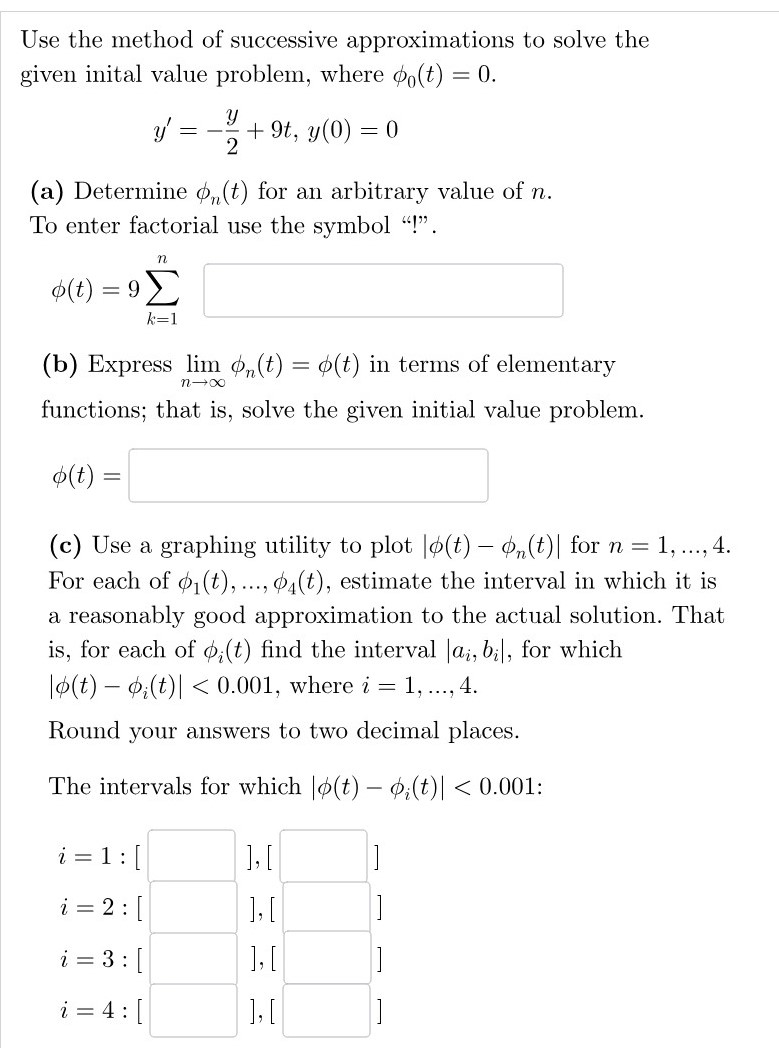Home /
Expert Answers /
Advanced Math /
use-the-method-of-successive-approximations-to-solve-the-given-inital-value-problem-where-phi-0-pa671
(Solved): Use the method of successive approximations to solve the given inital value problem, where \phi _(0) ...
Use the method of successive approximations to solve the
given inital value problem, where \phi _(0)(t)=0.
y^(')=-(y)/(2)+9t,y(0)=0
(a) Determine \phi _(n)(t) for an arbitrary value of n.
To enter factorial use the symbol "!".
\phi (t)=9\sum_(k=1)^n
(b) Express \lim_(n->\infty )\phi _(n)(t)=\phi (t) in terms of elementary
functions; that is, solve the given initial value problem.
\phi (t)=
(c) Use a graphing utility to plot |\phi (t)-\phi _(n)(t)| for n=1,dots,4.
For each of \phi _(1)(t),dots,\phi _(4)(t), estimate the interval in which it is
a reasonably good approximation to the actual solution. That
is, for each of \phi _(i)(t) find the interval |a_(i),b_(i)|, for which
|\phi (t)-\phi _(i)(t)|<0.001, where i=1,dots,4.
Round your answers to two decimal places.
The intervals for which |\phi (t)-\phi _(i)(t)|<0.001 :